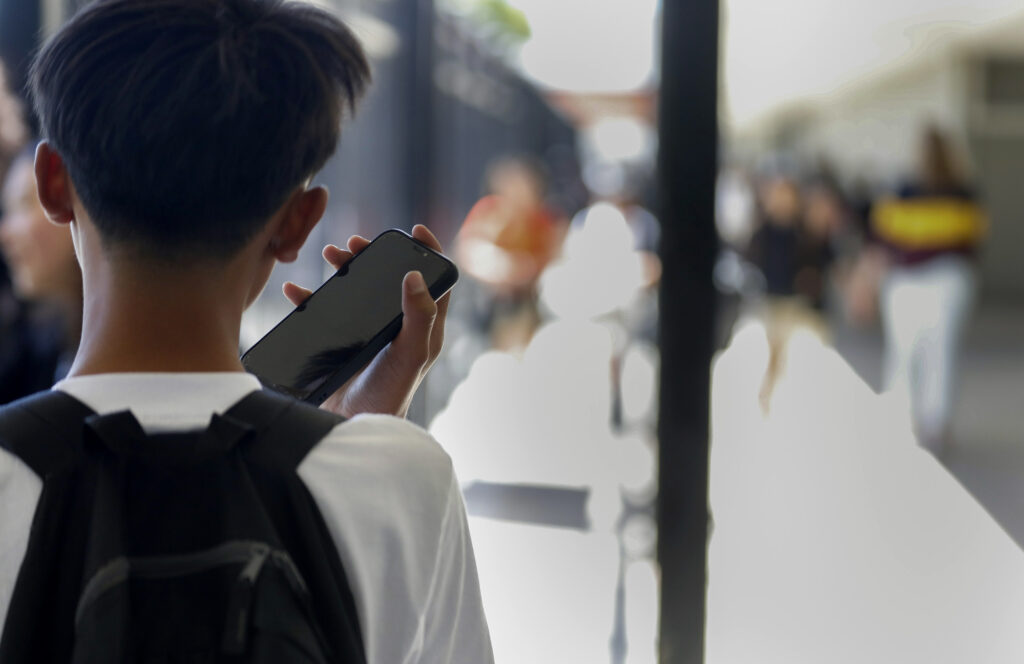
A student uses their cell phone after unlocking the pouch that secures it from use during the school day at Bayside Academy on Aug. 16, 2024, in San Mateo.
Credit: Lea Suzuki/San Francisco Chronicle via AP
California state legislators passed a bill Wednesday requiring school districts to ban or restrict student smartphone use on campuses during school hours.
Assembly Bill 3216, renamed the Phone-Free School Act, requires that every school district, charter school and county office of education develop a policy limiting the use of smartphones by July 1, 2026.
“Extended studies have demonstrated that the use of smartphones in classrooms can detract from students’ academic performances while contributing to higher rates of academic dishonesty and cyberbullying,” said the authors’ statement. “In consideration of California’s deficiency when it comes to academic performance, as compared to other states, it is imperative for the legislature to take action to resolve this issue.”
The Phone-Free School Act was authored by a bipartisan group of Assembly members that includes Republican Josh Hoover and Democrats Josh Lowenthal and Al Muratsuchi.

The legislation comes as states, school districts and individual schools are increasingly banning cellphones, smartwatches and other personal devices on campuses in an effort to curb classroom distractions, bullying and addiction to the devices.
At least five other states, including Florida, Indiana, Louisiana, South Carolina and Ohio have similar laws in place.
It is likely that Gov. Gavin Newsom will sign the legislation into law. He sent a letter to school district leaders earlier this month urging them to take immediate action to restrict cellphone use this school year. Excessive smartphone use increases anxiety, depression and other mental health issues in children, he said.
The use of personal devices increased during pandemic school closures, resulting in some students doubling their recreational screen time, according to research. This has led to concerns about addiction to the devices.
This legislation builds on a previous law passed in 2019 that gave school districts the authority, but did not require them, to regulate smartphones during school hours.
Assembly Bill 3216 allows school districts to enforce their cellphone policies by limiting student access to their smartphones. Currently, some schools enforce phone bans by requiring students to check them into “cellphone hotels” or stow them in locked pouches that can only be unlocked by school staff with a special magnet.
Many schools with cellphone prohibitions confiscate phones until the end of the school day if students flout the rules.
The legislation allows for some exemptions. Students will not be prohibited from using their phones if there is an emergency, when they are given permission by school staff, when a doctor says that the student needs the phone for medical reasons or when a smartphone is required in a special education student’s individualized education program.
The legislation also prohibits school officials and staff from accessing or monitoring a student’s online activities.
School districts are required to have “significant stakeholder participation” in developing their cellphone policy to ensure it is responsive to the needs of students, teachers and parents, according to the legislation. The policies must be updated every five years.
Adopting cellphone policies could collectively cost school districts hundreds of thousands of dollars, according to a state analysis of the legislation. Because it is a state mandate, the costs could be reimbursed by the state.

